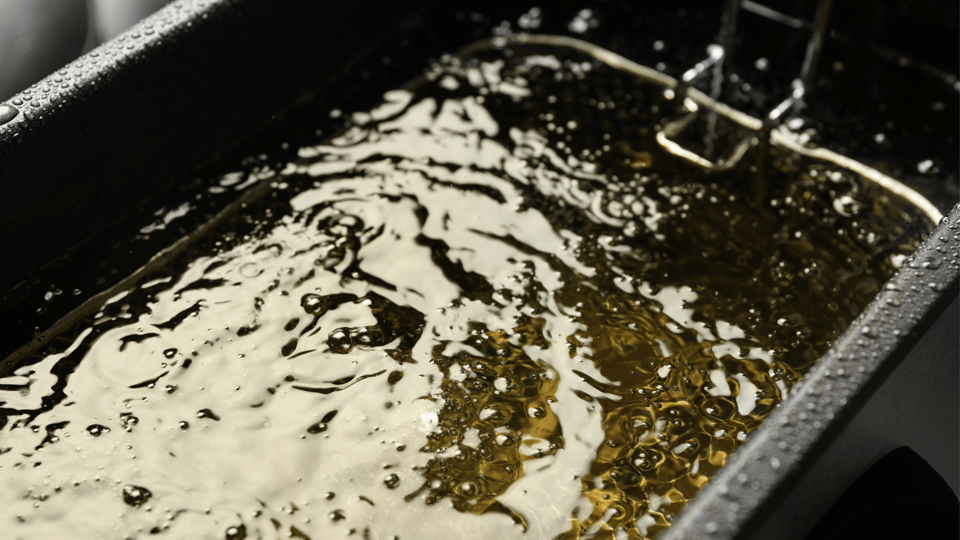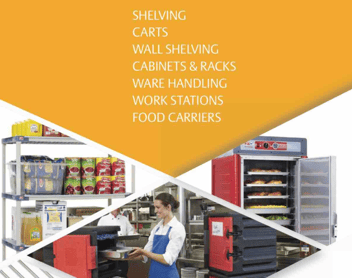Maximizing Productivity: Pitco Oil Filtration's Role in Labour Reduction and Cost Efficiency

The quality of the cooking oil in a commercial fryer can make or break the quality of a dish. Not only does dirty, unfiltered cooking oil affect the taste and texture of food, but it also indicates that the kitchen is reusing its oil more often than it should. By neglecting fryers and ignoring filtration schedules, foodservice businesses often end up with increased costs in multiple areas. With the Pitco Oil Filtration systems, it's easier to reduce labour and needless spending in commercial kitchens. Are you ready to experience the benefits of optimized operations and improved profitability?
Unseen Impact: Revealing the True Costs of Cooking Oil
Fluctuations in supply and demand play a significant role in cooking oil prices. Any disruption in the production or availability of cooking oil can lead to increased costs. Many factors impact the supply and demand of cooking oil, and most, such as geopolitical tensions and changes in consumer preferences, are out of an operator's control.
Economic challenges in major producing countries can also influence the demand and supply of cooking oil and related costs. With outside influences affecting an essential cooking product, there are a few important things to remember to prevent wasted oil and money.
Since cooking oil is crucial in delighting customers and gaining new revenue, the quality of oil used to prepare meals determines the consistency, visual appeal, and overall flavor of the food served. Another critical element to maintaining foodservice profits is properly storing and handling a commercial kitchen's cooking oil. Forget about placing oil in just any container and shoving it into a dark corner - selecting high-quality storage solutions will extend the life of cooking oil.
Filtering the Facts: Dispelling Commercial Oil Filtration Myths
There’s a myth in the foodservice industry that oil filtration is an unnecessary expense. The reality is quite the opposite. Maintaining high filtration standards ensures the removal of food particles, debris, and impurities that accumulate during cooking. Such filtration hazards deteriorate cooking oil and affect the taste of the food.
Understanding the positive impact of used cooking oil management, also known as oil recovery or recycling, is essential. Oil recovery is the collecting and disposing of oil waste created during food preparation. Foodservice operators who emphasize the education of kitchen staff and use oil recovery best practices see cost savings and increased sustainability.
It's important to filter commercial fryers on a schedule to maintain oil quality and increase shelf-life. This simple yet effective measure allows deep fryers to keep clean oil for extended periods, resulting in substantial long-term savings. By investing in cost-effective oil filtration and processes, bars, restaurants, schools, and hotels can significantly extend the life of their frying oil and reduce replacement costs.
Optimizing Labour and Safety: The Dual Benefits of Oil Filtration
Commercial fryers can be labour-intensive appliances that require training and a lot of maintenance to keep oil suitable for commercial cooking. On the other hand, having low-quality or old oil can lead to unpalatable flavors, undesirable textures, and potential health concerns.
There are several ways that using an older, non-automated fryer can impact staffing and profits:
- Time-Consuming Tasks: Frequent monitoring, adjusting, and cleaning leads to slower preparation and service.
- Staff Allocation: Fryer-related tasks consume labour hours and limit availability for other foodservice tasks.
- Efficiency and Turnaround: Delays in frying and cleaning affect production and increase customer wait times.
- Labour Costs: The labour-intensive nature of using non-automated fryers increases costs, as more hours are required to manage fryers.
- Oil Consumption: Improper temperature control and overcrowding increase oil usage and operating costs.
Oil Conservation Made Easy: The Impact of Pitco's Reclamation System
When introducing a new oil reclamation system or replacing fryers within an existing setup, you must let your commercial equipment partner and waste solution provider know about the changes. This guarantees a thorough assessment process and operational compatibility, including piping configuration and types of cooking oil.
An improper setup could lead to challenges in both fryer and oil management systems, making troubleshooting a common task in your commercial kitchen. Leveraging Pitco's certified service experts guarantees a seamless implementation and increased operational efficiencies.
Pitco's Oil Reclamation system is a hassle-free solution to help foodservice operators maintain efficient and cost-effective oil filtration practices in restaurants, hotels, and other commercial kitchens. The team at Pitco created a more cost-effective way for kitchen teams to maintain the best fryer filtration standards. Features include easy-to-use controls and monitoring the drain while the oil return process quickly begins. With Pitco's auto filter process for fryers, kitchen staff can eliminate crumbs and debris before starting the filtration cycle, ensuring clean and high-quality oil, which helps save time and money for foodservice businesses.
Is it time for your foodservice business to replace your fryers? Take our equipment assessment to find out:











